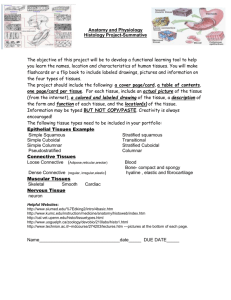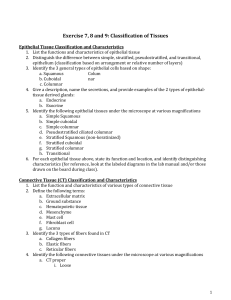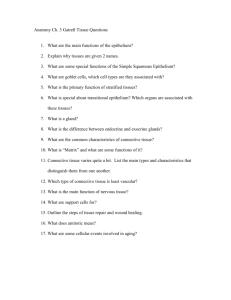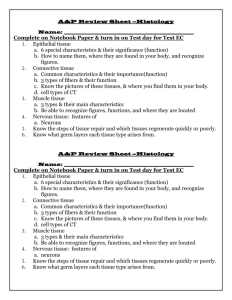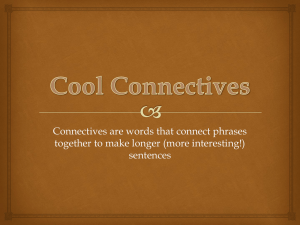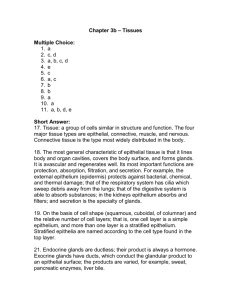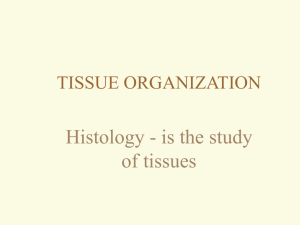Biology 1
advertisement
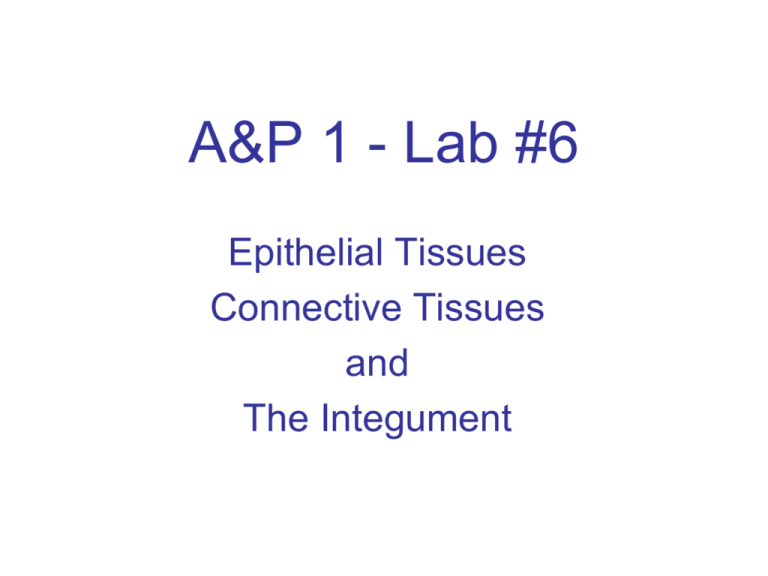
A&P 1 - Lab #6 Epithelial Tissues Connective Tissues and The Integument Epithelial Tissues Excercise 8 Tissue - A aggregate of with similar structure and function. Histology - The science that studies tissues. Epithelial Tissue – Groups of cells that are Protective Absorptive Secretory Transport Excretory Closely attached to each other to form tight sheets lacking in extracellular matrix and vascularization. Cells rest on basal lamina which in turn rests on connective tissue. Free on one end (Apical Surface). Epithelial Tissue Simple Pseudostratified Ciliated Stratified Nonciliated Squamous Squamous Cuboidal Columnar Columnar Ciliated Nonciliated Transitional Simple Squamus Simple Cuboidal Ciliated Columnar Pseudo Stratified Stratified Squamus Stratified Columnar Stratified Transitional Connective Tissue Perform binding, support ,transport and nutritive functions Connective tissue has three types of fibers Collagenous (white) Fibers –Relatively large, thick bundels. Reticular Fibers - Minute network of very fine threads stains well so it looks black. Elastic (yellow) Fiber- contains elastin protein. Found in organs and tissues that must yield to changes in shape. Connective Tissue Matrix Extra cellular fluid consisting of fibers, fluids, ground substance and or inorganic compounds form the connective tissue matrix. Cell types seen in matrix are fibroblasts, adipose cells, mast cells, plasma cells, macrophages and other types of blood cells. Ground Substance An amorphous solution or gel around the cells and fibers Connective Tissue Connective Tissue Proper Special Connective Tissue Loose Fibrous (Areolar) Hemopoietic (Blood-Forming) Dense Fibrous Support Cartilage Regular Irregular Hyaline Reticular Elastic Adipose Fibrocartilage Bone Compact Spongy Areolar Connective Tissue Dense Fibrous Regular Irregular Reticular Adipose Blood Hyaline Cartilage Elastic Cartilage Fibrocartilage
